|
Welcome
| |
The long, lingering days of summer are upon us. Perennial plants, flowers, and medicines have returned once again. It is the season for Indigenous peoples across Canada to set up summer camps out on the land, don trusty bear bells for treks through forest trails, and set out along the powwow trail. All of us at the NCCAH hope you enjoy the sunshine and this summer newsletter from wherever you may be!
Through to August 8th, we would like to extend a special invitation to all First Nations and Métis families in Manitoba to send in photos, art, stories, cartoons, and/or Indigenous language quotes celebrating the diversity and strengths of Indigenous parenting. These may be included in four early childhood development and health promotion booklets that are currently being produced by the NCCAH in partnership with the Health Child Manitoba Office (HCMO). For more information, see the call out for submission.
On the home front, the NCCAH has participated in a number of national public health events over the past several months. Namely, we displayed our NCCAH products at the Indigenous Health Conference: Towards Health and Reconciliation (Toronto, May 26-27, 2016), at the 11th National Community Health Nurses of Canada Conference (St. John's, May 30 -June 1, 2016), and most recently at the annual conference of the Canadian Public Health Association, Public Health 2016 (Toronto, June 13-16, 2016). The NCCAH, along with the other National Collaborating Centres (NCCs), was also very active at Public Health 2016 in a number of symposia and networking sessions. For more information on Public Health 2016, see the full web story.
We released a number of new resources in addition to contributing to external publications. The NCCAH report, "An Introduction to the Health of Two-Spirit People: Historical, contemporary and emergent issues" authored by Dr. Sarah Hunt, was published, as was an updated NCCAH fact sheet on culture and language as social determinants of First Nations, Inuit and Métis health (with supplementary infographics). Sarah de Leeuw and I contributed the article "Geographies of Indigenous Children and Youth: A Critical Review Grounded in Spaces of the Colonial Nation-State" to the series Geographies of Children and Youth People published by Springer. Sarah authored "Tender grounds: Intimate visceral violence and British Columbia's colonial geographies" which was included in Political Geographies, and I was a co-contributor to "A Beginning: Images of Children's Rights: Children's Perspectives Project" in Exchange and "Maternal and community predictors of gastroschisis and congenital diaphragmatic hernia in Canada" in Pediatric Surgery International. Additionally, recent NCCAH work was profiled in the article, "Determinants of Indigenous peoples' health and well-being: Featured publications from the National Collaborating Centre for Aboriginal Health", in the June 2016 Ontario Health Promotion E-Bulletin. Finally, the NCCAH is increasing the use of webinars as a means of expanding our knowledge translation resources. In March, we hosted the webinar "Re-thinking Family Violence: Centering Indigenous Knowledges" with presenters Drs. Sarah Hunt, Cindy Holmes and Leanne Betasamosake Simpson. Stay posted for future NCCAH webinars.
If you are interested in knowing about all of our publications, please see our new Resources Booklet. Be sure to visit our website or subscribe to our mailing list to receive notifications of newly released NCCAH resources, upcoming webinars and our regular quarterly newsletters. Please enjoy and share our knowledge resources with your community and networks and join us on Twitter, Facebook, Google+, LinkedIn, Vimeo, YouTube, or SoundCloud to participate in updates as they happen!
Meegwetch
Margo Greenwood, Academic Leader
National Collaborating Centre for Aboriginal Health (NCCAH)
|
|
|
NCCAH Event Photos & News
| |
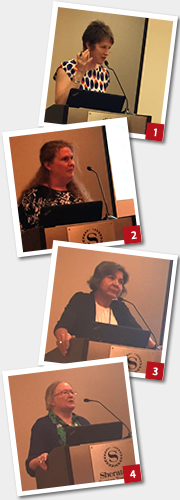
|
NCCAH at CPHA Public Health 2016
Over the four days of the Canadian Public Health Association's annual conference, Public Health 2016, the NCCAH and sister NCCs were active in a number of symposia and networking sessions. Sarah de Leeuw and Chantelle Richmond presented in the NCCAH symposium, "Geography, Land, and Environment as Determinants of Indigenous Peoples' Health and Well-being". The NCCAH hosted the symposium, "A Call to Action: Pathways to First Nation, Inuit and Métis Health Equity in Canada" with panelists Sarah de Leeuw (1), Tanya Davoren (2), Patricia Makokis (3) and Shirley Tagalik (4). As well, the NCCAH and the National Collaborative Centre on Environmental Health (NCCEH) coordinated the symposium "Integrating Indigenous Community Planning into a Healthy Built Environment" with presenters Roberta Stout, Catherine Donavon, Jeremy Seeseequasis, and Aaron Aubin. This annual conference is an opportunity for the NCCs to showcases their work, grow their networks and expand collaborations. Two NCC-specific events afforded such opportunities, including the National Collaborating Centres for Public Health (NCCPH) networking dinner and collaborator session on the "Successes and Lessons Learned about Knowledge Translation and Social Media."
(Web story | View presentation materials)
|
| |
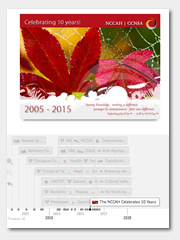
NCCAH History:
An Interactive Timeline
|
The NCCAH Celebrates 10 Years!
The National Collaborating Centre for Aboriginal Health (NCCAH) proudly celebrates a successful decade of knowledge sharing about Indigenous peoples' and public health in Canada. As part of our vision, and through the guidance and commitment of our Advisory Committee members, we have ensured that Indigenous ways of knowing and being are integrated into how we develop our resources and share knowledge. Over the past ten years we have held fast to our goal of supporting respectful and meaningful research, policy and practice to advance the optimal health and well-being of First Nations, Inuit and Métis peoples.
In this new era of reconciliation, we are excited to continue our work of sharing knowledge, of honoring First Nations, Inuit and Métis peoples' diversity and cultures, and of promoting their optimal health and well-being!
In celebration of our achievements, we want to share some of our knowledge translation stories with you, so please visit the full web story to read more and explore our interactive timeline.
|
|
|
Attended Events
|
Upcoming Events
| |
Indigenous Health Conference (IHC) 2016: Towards Health and Reconciliation
Toronto, Ontario, May 26-27, 2016. Conference web site link
11th National Community Health Nurses of Canada (CHNC) Conference St. John's, Newfoundland, May 30 - June 1, 2016. Conference web site link
Canadian Public Health Association (CPHA) Public Health 2016 Toronto, Ontario, June 13-16, 2016. Conference web site link
Please visit the online NCCAH calendar of events, which highlights conferences, workshops, and other events of interest in the field of Aboriginal Health including regional, national and global listings. |
Atlantic Summer Institute (ASI) 2016
Charlottetown, Prince Edward Island, August 16-18, 2016. Conference web site link
CIPHI's 82nd Annual Educational Conference (AEC) Edmonton, Alberta, September 26 - 28, 2016. Conference web site link
The 6th Global Forum on Health Promotion Charlottetown, Prince Edward Island, October 16 - 17, 2016. Conference web site link
Heart-Mind Conference Surrey, British Columbia, October 21 - 22, 2016. Conference web site link
Send us an email to nccah@unbc.ca with "Calendar Submission" in the subject line if you have an event you would like added to our calendar. |
|
|
New NCCAH Resources
| |
The NCCAH hosted webinar, "Re-thinking Family Violence: Centering Indigenous Knowledges", was held on March 10, 2016 with presenters Drs. Sarah Hunt, Cindy Holmes and Leanne Betasamosake Simpson. Drs. Hunt and Holmes began the webinar with a discussion of their research on how family violence and solutions to this violence in Indigenous communities have been framed in Canada over the past 20 years. Dr. Simpson then presented teachings through digital storytelling based in Anishinabek knowledge about families, healthy relationships, holistic views of health and the relational nature of wellness to encourage a rethinking of family violence in the context of Indigenous worldviews. The webinar ended with a series of questions for the 203 participants to take away for further thought and discussion in their own cultural and community contexts.
(Webinar Resources | View archived announcement)
   
|
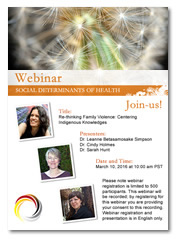
Re-thinking Family Violence:
Centering Indigenous Knowledges
|
| |
Two-Spirit is a term that encompasses a broad range of sexual and gender identities of Aboriginal peoples, including those who identify as lesbian, gay, bisexual, transgender, or queer (LGBTQ). This paper, authored by Dr. Sarah Hunt, introduces the historical, contemporary and emergent issues related to Two-Spirit health. Integral to this discussion is that Two-Spirit health is understood within the context of colonialism and heteropatriarchy, as well as in the current resurgence of Two-Spirit peoples' gender roles and sexual identities.
(Read the full web story)
|
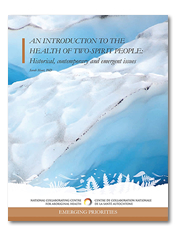
An Introduction to the Health of
Two-Spirit People: Historical, contemporary and emergent issues
|
| |
Culture is the foundation of individual and collective identity, and is expressed and maintained through language. The erosion of culture and language can adversely affect mental health and well-being. This fact sheet reviews disruptions to, and current trends, in language use and cultural practices for First Nations, Inuit and Métis peoples; provides an overview of how language and culture influence Indigenous perceptions of health and illness; and highlights some promising initiatives in revitalizing their languages and cultures. This fact sheet includes an infographic overview.
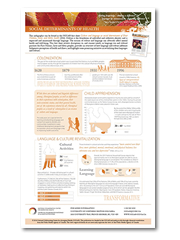
(View the infographic)
|
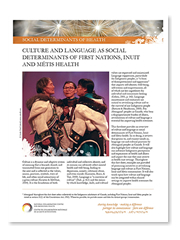
Culture and language as social determinants of First Nations, Inuit, and Métis health
|
| |
This resource booklet provides an overview of the activities, mandate and publications of the National Collaborating Centre for Aboriginal Health (NCCAH). It has been designed as a quick glance at over 150 knowledge resources, including fact sheets, reports, DVDs, reviews, and social media links, available on the NCCAH web site within the four main areas of our work.
(Request NCCAH publications)
|
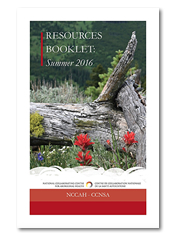
Resources Booklet:
Summer 2016
|
|
|
Online Resources
| |
In support of creating a health community focused on knowledge synthesis, transfer and exchange we have chosen a sampling of current online resources to share. Please note the links provided in the NCCAH newsletters are for general interest only and do not indicate an endorsement. The views expressed in the linked resources do not necessarily represent the views of the NCCAH or our funder the Public Health Agency of Canada.
Send us an email to nccah@unbc.ca with "Online Resource" in the subject line if you have an online resource you would like added to our next newsletter.
|
| |
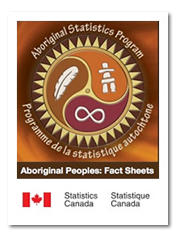
18 Statistics Canada Aboriginal Peoples Fact Sheets
|
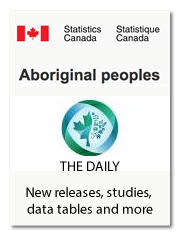
Statistics Canada: "The Daily" Aboriginal Peoples (25 items)
|
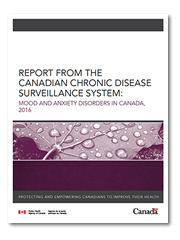
Report from the Canadian Chronic Disease Surveillance System: Mood and Anxiety Disorders in Canada, 2016
| |
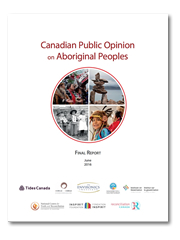
Environics Institute for Survey Research - Canadian Public Opinion on Aboriginal Peoples Final Report June 2016
|
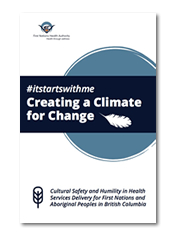
First Nations Health Authority (FNHA) - Creating a Climate for Change: Cultural Humility Resource Booklet
|
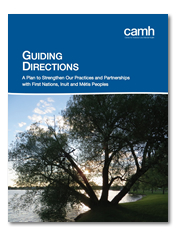
Centre for Addiction and Mental Health (CAMH) - A Plan to Strengthen Our Practices and Partnerships with First Nations, Inuit and Métis Peoples
| |
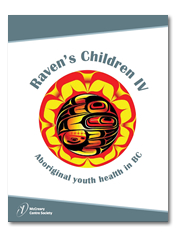
McCreary Centre Society - Raven's Children IV: Aboriginal youth health in BC
|
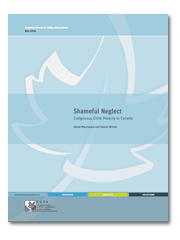
Canadian Centre for Policy Alternatives (CCPA) - Shameful Neglect: Indigenous Child Poverty in Canada
|
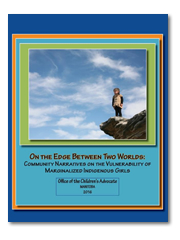
The Office of the Children's Advocate Manitoba - On the Edge Between Two Worlds: Community Narratives on the Vulnerability of Marginalized Indigenous Girls
| |
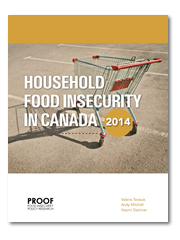
PROOF - Household Food Insecurity in Canada, 2014
|
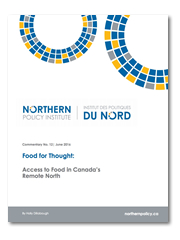
Northern Policy Institute - Food for Thought: Access to Food in Canada's Remote North
|
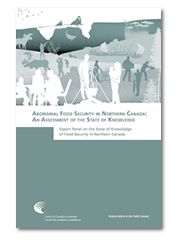
Council of Canadian Academies - Aboriginal Food Security in Northern Canada: An Assessment of the State of Knowledge
| |
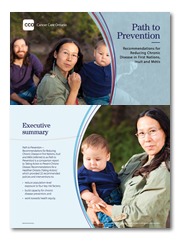
Cancer Care Ontario - Path to Prevention: Recommendations for Reducing Chronic Disease in First Nations, Inuit and Métis
|
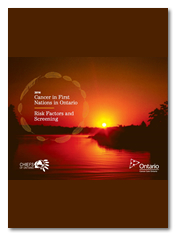
Chiefs of Ontario and Cancer Care Ontario - Cancer in First Nations in Ontario: Risk Factors and Screening
|
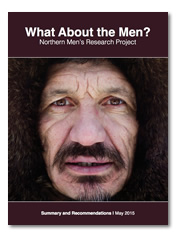
Nunavut Literacy Council - What About the Men? Northern Men's Research Project
| |
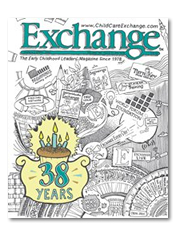
Exchange No. 228 March/April 2016 - CHILDREN'S RIGHTS: A Beginning: Images of Children's Rights: Children's Perspectives Project
|
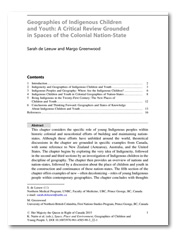
Geographies of Indigenous Children and Youth: A Critical Review Grounded in Spaces of the Colonial Nation-State (pp. 1-19)
|
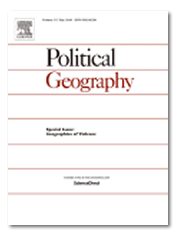
Political Geographies Volume 52 - Tender grounds: Intimate visceral violence and British Columbia's colonial geographies (pp. 14-23)
| |
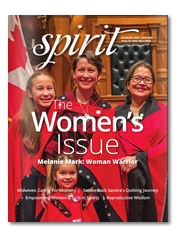
First Nations Health Authority (FNHA) Spirit Magazine - The Women's Issue
|
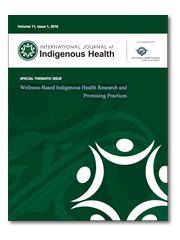
International Journal of Indigenous Health (IJIH) Vol. 11, Issue 1, 2016. Special thematic issue: Wellness-Based Indigenous Health Research and Promising Practices
|
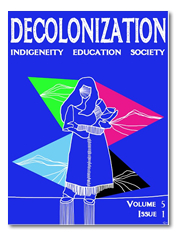
Decolonization: Indigeneity, Education & Society, Vol 5, No 1 (2016)
| |
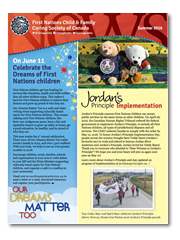
Caring Society Newsletter - Summer 2016
|
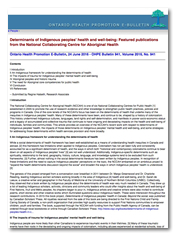
Ontario Health Promotion E-Bulletin (OPHE) 941, June 24, 2016 - "Determinants of Indigenous peoples' health and well-being: Featured publications from the NCCAH"
|
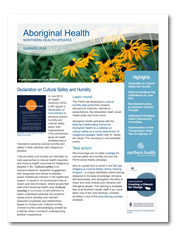
Northern Health: Aboriginal Health Newsletter - Summer 2016
|
|
|
|
Online Multimedia
| |
This section features infographics, interactives, apps or videos that we found interesting or educational. Please note the links provided in the NCCAH newsletters are for general interest only and do not indicate an endorsement. The views expressed in the linked resources do not necessarily represent the views of the NCCAH or our funder the Public Health Agency of Canada.
Send us an email if you have multimedia resources you would like included in our next newsletter to nccah@unbc.ca with "Multimedia Submission" in the subject line.
| |
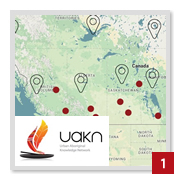
|
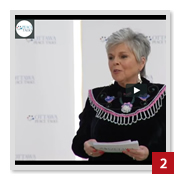
|

| |
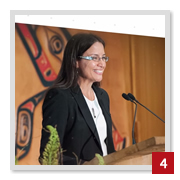
|
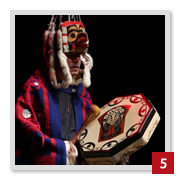
|
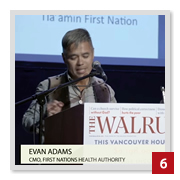
| |
1) The UAKN Research Mapping Tool is an interactive map resource that provides that latest statistics, research and information on the Urban Aboriginal population in Canada.
2) In this video "The Full Potential of Indigenous People", recorded at the Ottawa Peace Talks 2016, Roberta Jamieson shares her views on the importance of reconciliation, respect, and education to build peaceful societies.
3) The infographic, "Jordan's Principle: The 8 Steps to Get There (AFN)", is one of several resources listed on the First Nations Child & Family Caring Society web site.
4) This video from the Royal College of Physicians and Surgeons of Canada features an interview with the 2016 Dr. Thomas Dignan Indigenous Health Award recipient Dr. Nadine Caron.
5) The North Coast Aboriginal Health Improvement Committee video titled "Honouring Our Journey" is a 25 minute video that offers information for health care providers about the Haida and Tsimshian Nations' culture and history, and how these impact their health care needs.
6) This video from the Walrus Talks series features Evan Adams, Chief Medical Officer for the First Nations Health Authority (FNHA), presenting "Two-eyed seeing: resistance and resilience in Indigenous health".
|
|
|
The NCCs of NCCPH
| |
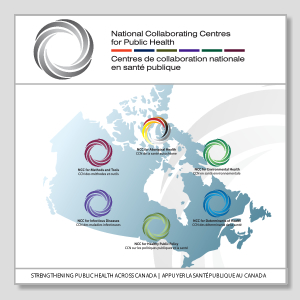
|
The NCCs of NCCPH work together to promote and improve the use of scientific research and other knowledge to strengthen public health practices and policies in Canada. We identify knowledge gaps, foster networks and translate existing knowledge to produce and exchange relevant, accessible, and evidence-informed products with practitioners, policy makers and researchers.
Read the latest NCC e-bulletin
|
|
|